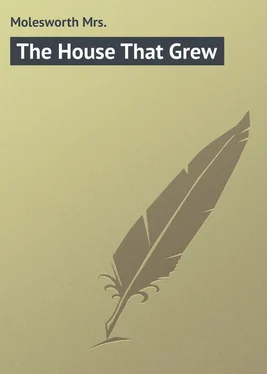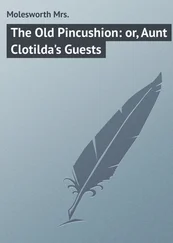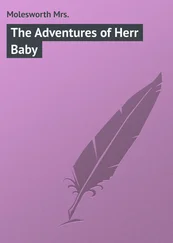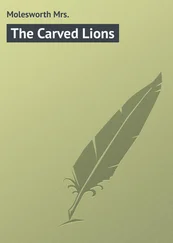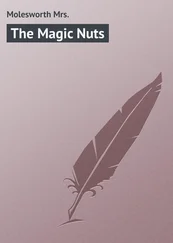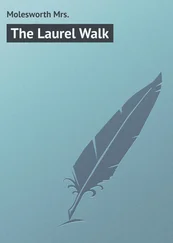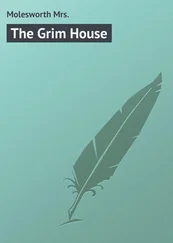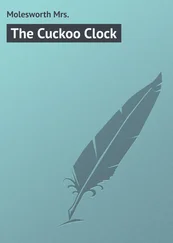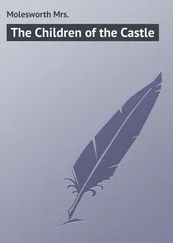Mrs. Molesworth - The House That Grew
Здесь есть возможность читать онлайн «Mrs. Molesworth - The House That Grew» — ознакомительный отрывок электронной книги совершенно бесплатно, а после прочтения отрывка купить полную версию. В некоторых случаях можно слушать аудио, скачать через торрент в формате fb2 и присутствует краткое содержание. Жанр: foreign_prose, foreign_children, на английском языке. Описание произведения, (предисловие) а так же отзывы посетителей доступны на портале библиотеки ЛибКат.
- Название:The House That Grew
- Автор:
- Жанр:
- Год:неизвестен
- ISBN:нет данных
- Рейтинг книги:5 / 5. Голосов: 1
-
Избранное:Добавить в избранное
- Отзывы:
-
Ваша оценка:
- 100
- 1
- 2
- 3
- 4
- 5
The House That Grew: краткое содержание, описание и аннотация
Предлагаем к чтению аннотацию, описание, краткое содержание или предисловие (зависит от того, что написал сам автор книги «The House That Grew»). Если вы не нашли необходимую информацию о книге — напишите в комментариях, мы постараемся отыскать её.
The House That Grew — читать онлайн ознакомительный отрывок
Ниже представлен текст книги, разбитый по страницам. Система сохранения места последней прочитанной страницы, позволяет с удобством читать онлайн бесплатно книгу «The House That Grew», без необходимости каждый раз заново искать на чём Вы остановились. Поставьте закладку, и сможете в любой момент перейти на страницу, на которой закончили чтение.
Интервал:
Закладка:
Molesworth Mrs.
The House That Grew
CHAPTER I
'IT'S DREADFUL, ISN'T IT?'
Mamma sat quite quietly in her favourite corner, on the sofa in the drawing-room, all the time papa was speaking. I think, or I thought afterwards, that she was crying a little, though that isn't her way at all. Dods didn't think so, for I asked him, when we were by ourselves. She did not speak any way, except just to whisper to me when I ran up to kiss her before we went out, 'We will have a good talk about it all afterwards, darling. Run out now with Geordie.'
I was very glad to get out of the room, I was so dreadfully afraid of beginning to cry myself. I didn't know which I was the sorriest for – papa or mamma – mamma, I think, though I don't know, either! Papa tried to be so cheerful about it; it was almost worse than if he had spoken very sadly. It reminded me of Dods when he was a very little boy and broke his arm, and when they let me peep into the room just after the doctor had set it, he smiled and whistled to make out it didn't hurt much, though he was as white as white. Poor old Doddie! And poor papa!
'It'll be worse for us and for mamma than for papa, won't it, Dods?' I said, as soon as we were outside and quite out of hearing. 'They always say that it's the worst for those that are left behind – the going-away ones have the change and bustle, you see.'
'How can I tell?' said Dods; 'you ask such stupid things, Ida. It's about as bad as it can be for everybody, and I don't see that it makes it any better to go on counting which it's the worst for.'
He gave himself a sort of wriggle, and began switching the hedge with the little cane he was carrying; by that and the gruff tone of his voice, I could tell he was feeling very bad, so I didn't mind his being rather cross, and we walked on for a minute or two without speaking.
Then suddenly Dods – I call him Dods, but his real name is George, and mamma calls him Geordie – stopped short.
'Where are you going, Ida?' he said. 'I hear those children hallooing over there in the little planting. They'll be down upon us in another moment, tiresome things, if we don't get out of the way, and I certainly don't want them just now.'
I didn't either, though I'm very fond of them. But they're so much younger, only seven and eight then, and Dods and I were thirteen and fourteen. And we have always gone in pairs. Dods and I, and Denzil and Esmé. Besides, of course, the poor little things were not to be told just yet of the strange troubles and sorrows that had come, or were coming, to us.
So I agreed with Dods that we had better get out of the way.
'Esmé is so quick,' I said; 'she'd very likely see there was something the matter, and papa did so warn us not to let them know.'
'Humph,' said Dods. 'I don't think we need worry about them . Denzil is as dense as a hedgehog, and as comfortable as a fat dormouse. He'd never worry as long as he has plenty to eat and a jolly warm bed to sleep in. And Esmé's just a – '
'A what?' I said, rather vexed, for Esmé is a sweet. She's not fat or lazy, and I don't think Denzil is – not extra, for such a little boy.
'She's just a sort of a butterfly,' said Geordie. ' She'd never mind anything for long. She'd just settle down for half a moment and then fly up again as merry as a sandboy.'
I could not help bursting out laughing. It was partly, I daresay, that I felt as if I must either laugh or cry. But Dods did mix up his – 'similes,' I think, is the right word – so funnily! Hedgehogs and dormice and butterflies and sandboys, all in a breath.
'I don't see what there is to laugh at,' said Geordie, very grumpily again, though he had been getting a little brighter.
'No more do I, I'm sure,' I replied, sadly enough, and then, I think, Dods felt sorry.
'Where shall we go?' he said gently.
'Wherever you like – to the hut, I think. It is always nice there, and we can lock ourselves in if we hear the children coming,' I answered.
The hut, as we called it, was our very most favourite place. It was much more than you would fancy from the name, as you will hear before long. But we did not wait to go on talking, till we got there. The children's voices did not come any nearer, but died away in the distance, so we walked on quietly, without hurrying.
'Ida,' said Geordie after a bit, 'it's dreadful, isn't it?'
'Yes,' I agreed; 'I think it is.'
The 'it' was the news poor papa had been telling us. We were not quite like most other children, I think, in some ways. I think we – that is, Dods and I – were rather more thoughtful, though that sounds like praising ourselves, which I am sure I don't mean. But papa and mamma had always had us a good deal with them and treated us almost like companions, and up to now, though he was getting on for thirteen, Dods had never been away at school, only going to Kirke, the little town near us, for some lessons with the vicar, and doing some with me and our governess, who came over from Kirke every day. So papa had told us what had to be told, almost as if we were grown-up people.
We did not understand it quite exactly, for it had to do with business things, which generally mean 'money' things, it seems to me, and which, even now, though I am sixteen past, I don't perfectly understand. And I daresay I shall not explain it all as well as a quite grown-up person would. But I don't think that will matter. This story is just a real account of something rather out of the common, and I am writing it partly as a kind of practice, for I do hope I shall be able to write stories in books some day, and partly because I think it is interesting even if it never gets into a book, and I should like Denzil and Esmé to read it all over, for fear of their forgetting about it.
I must first tell what the news was that we had just heard. Poor papa had lost a lot of money!
We were not very rich, but we had had quite enough, and our home was – and is , I am thankful to say – the sweetest, nicest home in the world. Our grandfathers and great-grandfathers back to papa's great-great ones have always lived here and seen to everything themselves, which makes a home nicer than anything else. But a good deal of papa's money came from property a long, long way off – somewhere in the West Indies. It had been left to his father by his godmother, and ever since I was quite little I remember hearing papa say what a good thing it was to have some money besides what came from our own property at home. For, as everybody knows, land in England – especially, I think, in our part of it – does not give half as much as it used to, from rents and those sorts of things.
And we got into the way – I mean by 'we,' papa and mamma, and grandpapa, no doubt, in his time – of thinking of the West Indian money as something quite safe and certain, that could not ever 'go down' like other things.
But there came a day, not very long before the one I am writing about, which brought sudden and very bad news. Things had gone wrong, dreadfully wrong out at that place – Saint Silvio's – and it was quite possible that all our money from there would stop for good. The horrid part of it was, that it all came from somebody's wrongdoing – not from earthquakes or hurricanes or outside troubles of that kind – but from real dishonesty on the part of the agents papa had trusted. There was nothing for it but for poor papa himself to go out there, for a year at least, perhaps for two years, to find out everything and see what could be done.
There was a possibility , papa said, of things coming right, or partly right again, once he was there and able to go into it all himself. But to do this it was necessary that he should start as soon as could be managed; and with the great doubt of our ever being at all well off again, it was also necessary that mamma and we four should be very, very careful about expenses at home, and just spend as little as we could.
Читать дальшеИнтервал:
Закладка:
Похожие книги на «The House That Grew»
Представляем Вашему вниманию похожие книги на «The House That Grew» списком для выбора. Мы отобрали схожую по названию и смыслу литературу в надежде предоставить читателям больше вариантов отыскать новые, интересные, ещё непрочитанные произведения.
Обсуждение, отзывы о книге «The House That Grew» и просто собственные мнения читателей. Оставьте ваши комментарии, напишите, что Вы думаете о произведении, его смысле или главных героях. Укажите что конкретно понравилось, а что нет, и почему Вы так считаете.
